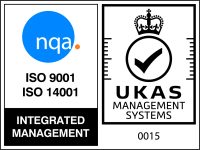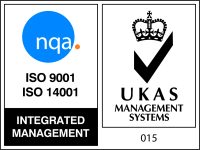It is often said that a clean, tidy environment is a guaranteed way of boosting the productivity of those who use a particular space. For those directly undertaking the task of cleaning, productivity may be a given, but efficiency might demand a bit more planning. To get the best results from their hard work, a cleaning team should understand not just how to clean, but how to complete their tasks in the most efficient way possible.
Why Does Efficiency in Cleaning Matter?
It is one thing to complete a job or a task, but quite something else to do so efficiently. This is certainly true within the cleaning sector, where untrained staff may be able to finish a job, but not necessarily be able to complete it in a time or product-efficient manner, thereby costing their customers or clients money. Likewise, this lack of training and experience can also compromise the overall quality of a clean — something that can, of course, have an impact on clients. In short, efficiency in the professional cleaning sector matters because it protects both bottom lines and, more importantly, customer wellbeing.
Embrace the Power of Team Cleaning
In order to enhance the overall efficiency of their cleaning power, hygiene professionals may — depending on the size and type of facility to be cleaned — wish to embrace the power of team cleaning. While zone cleaning — which means that a single cleaner has the responsibility for each task in a given area, as CleanLink explains — is still used in some environments, team cleaning can offer the opportunity for all cleaners within a team to work as a cohesive and effective unit. Highlighting the difference between zone and team cleaning, the outlet observes that, with the former method, “…in an eight-story building, a cleaning crew will require eight janitors, each equipped with their own tools — a costly scenario in terms of labour and products. Also, each janitor will work at his or her own pace and as a result, those janitors who finish faster will be asked to help those still working. This can create conflict between janitors. And since no two janitors are alike, each one will clean to individual standards, making it hard to supervise a facility and achieve the same desired level of cleanliness.”
However, the outlet adds that — if cleaners embrace the team method — fewer cleaners are required to tend to the exact same space. As CleanLink explains, “Each team member is responsible for a specific task — light-duty work, vacuuming, restroom cleaning or project work. Since janitors are concentrating on specific tasks, they can clean faster. It is also easier to supervise because all work is being done at the same standard.”
Cleaning Maintenance & Management observes that the team method can offer both a better quality of clean as well as a more efficient one, as cleaners move through a site or a space as a unit, with each individual operative continuously performing their specialist tasks.
Cleaning Efficiently: Practical Advice
While various methods and modes of cleaning can certainly aid in streamlining tasks and procedures, there are other factors that can help to enhance efficiency while cleaning. First and foremost among these, of course, is training. Whether this means verifying that all members of a team know and understand basic cleaning techniques and protocols or how to use a new product or piece of kit, proper training helps to ensure that no time, product or money is wasted during the cleaning process.
For managers and members of cleaning teams alike, communication is absolutely vital during and beyond the training process, as Cleaning Marketer explains. Additionally, ISSA adds that technology can be a real boon when it comes to creating and sharing cleaning schedules. Scheduling technology, it explains, means that, “…clients can be kept in the loop about contract fulfillment responsibilities, costs may decrease, and cleaners can quickly know what work needs to be done.” This kind of technology also enables cleaners to easily access information on their clients as and when they want or need.
Finally, as Cleaning Maintenance & Management observes, the ability of a cleaner or cleaning team to ‘flex’ to the task at hand can also impact greatly upon efficiency. That is to say, no single method will suit every job and so a cleaner’s ability to respond dynamically to each individual challenge is absolutely key. With careful assessment and solid training, cleaners can ensure that they are not just productive, but efficient in each and every task they undertake.








